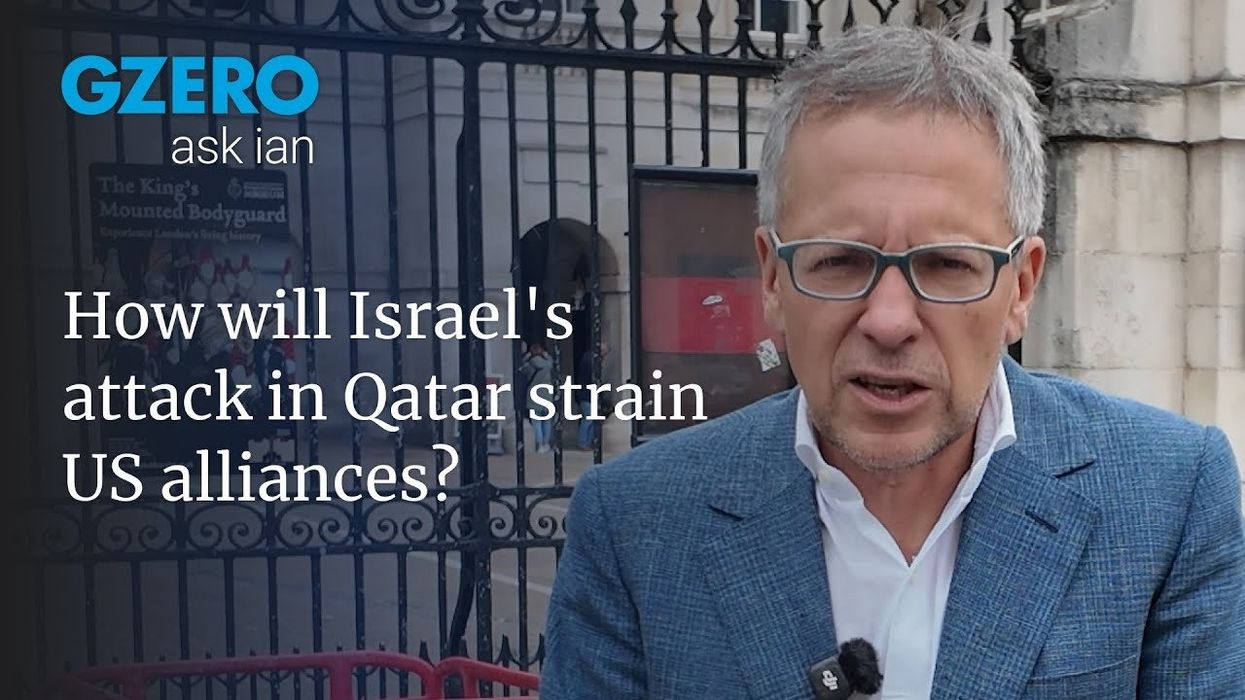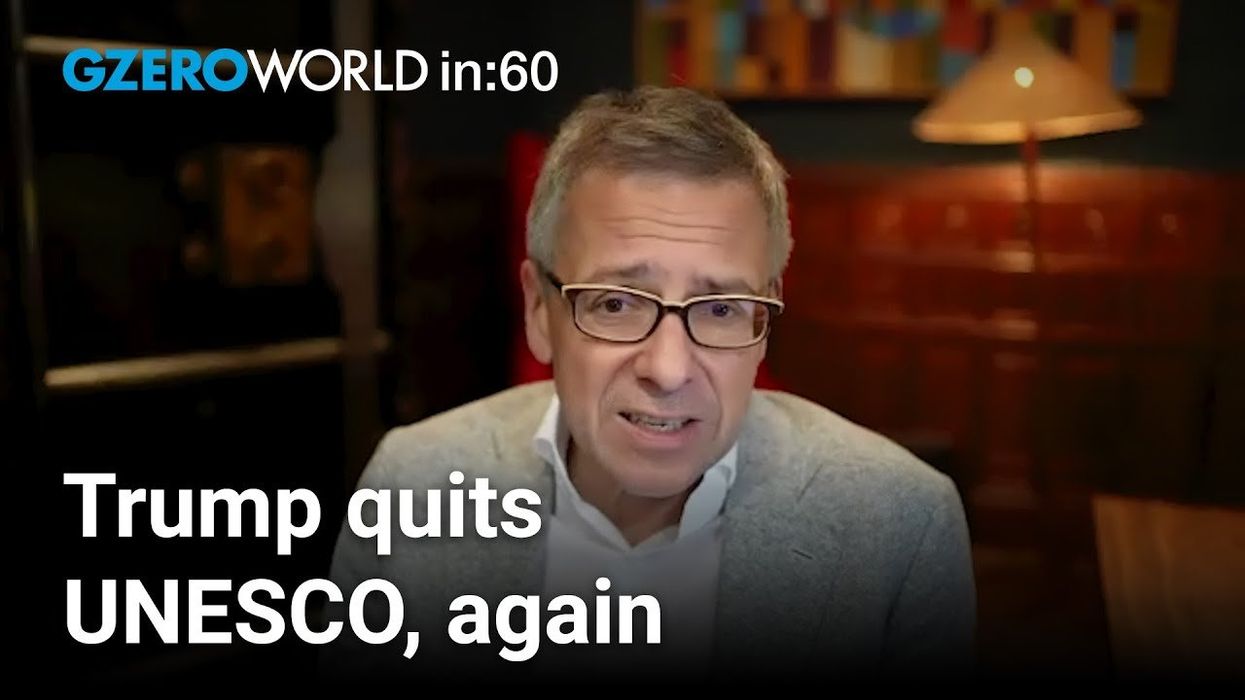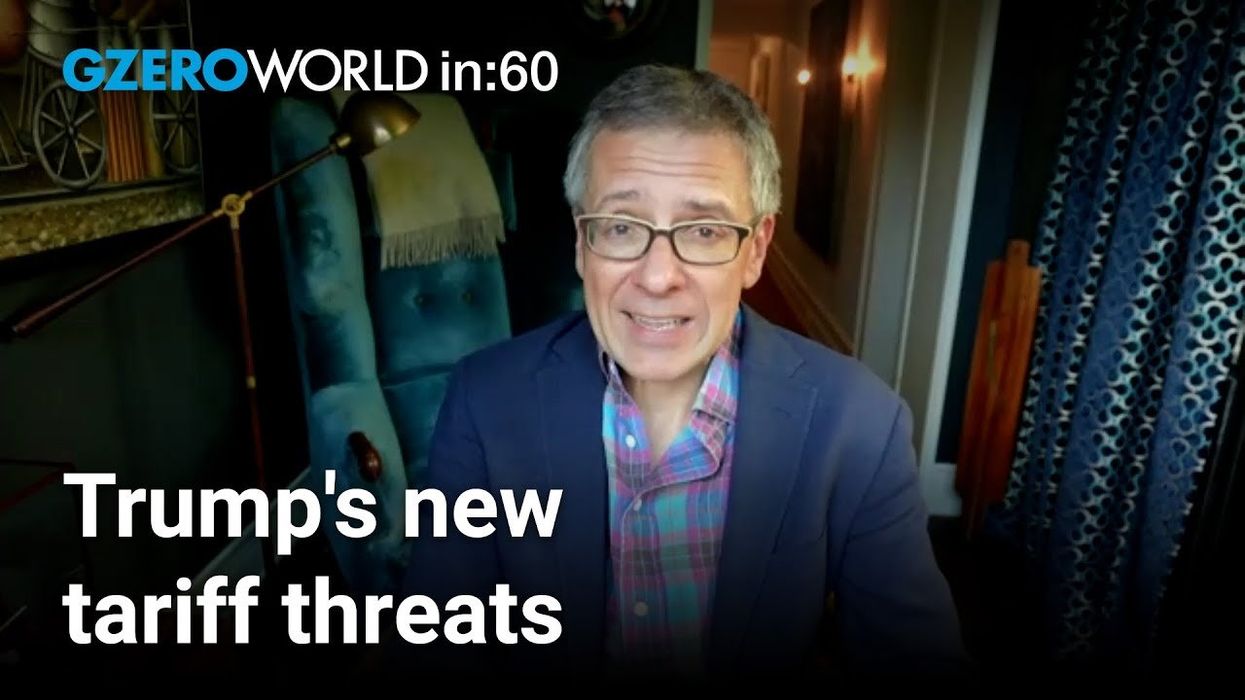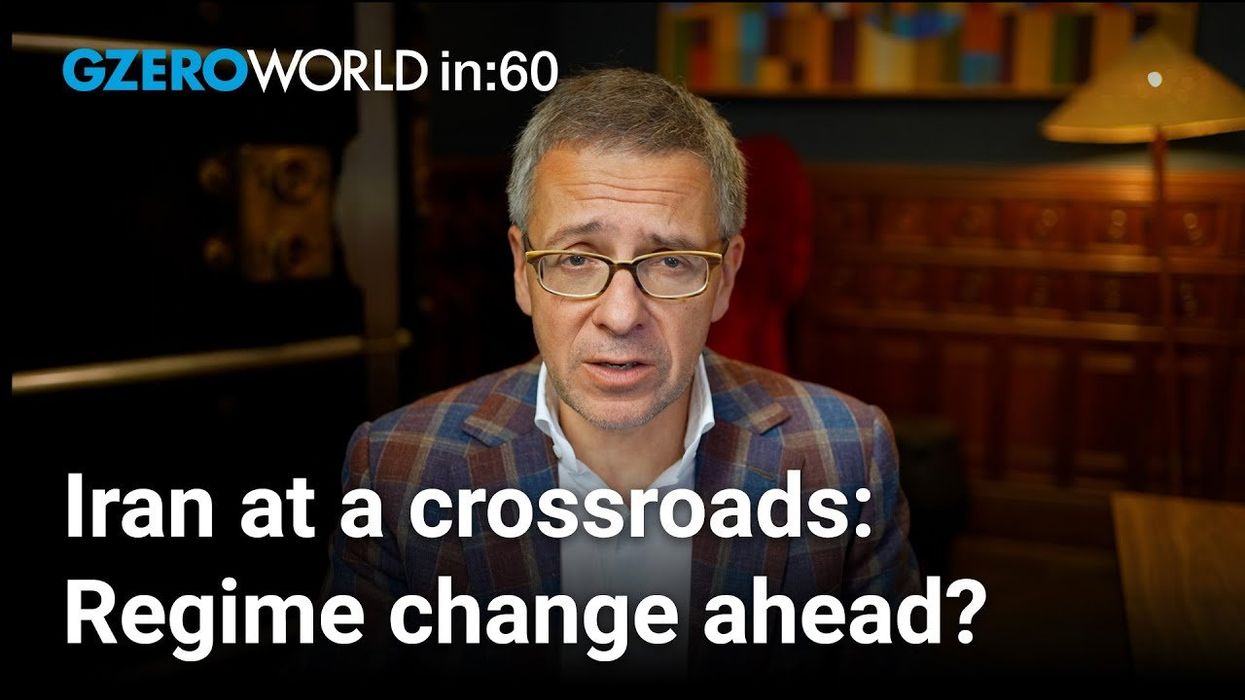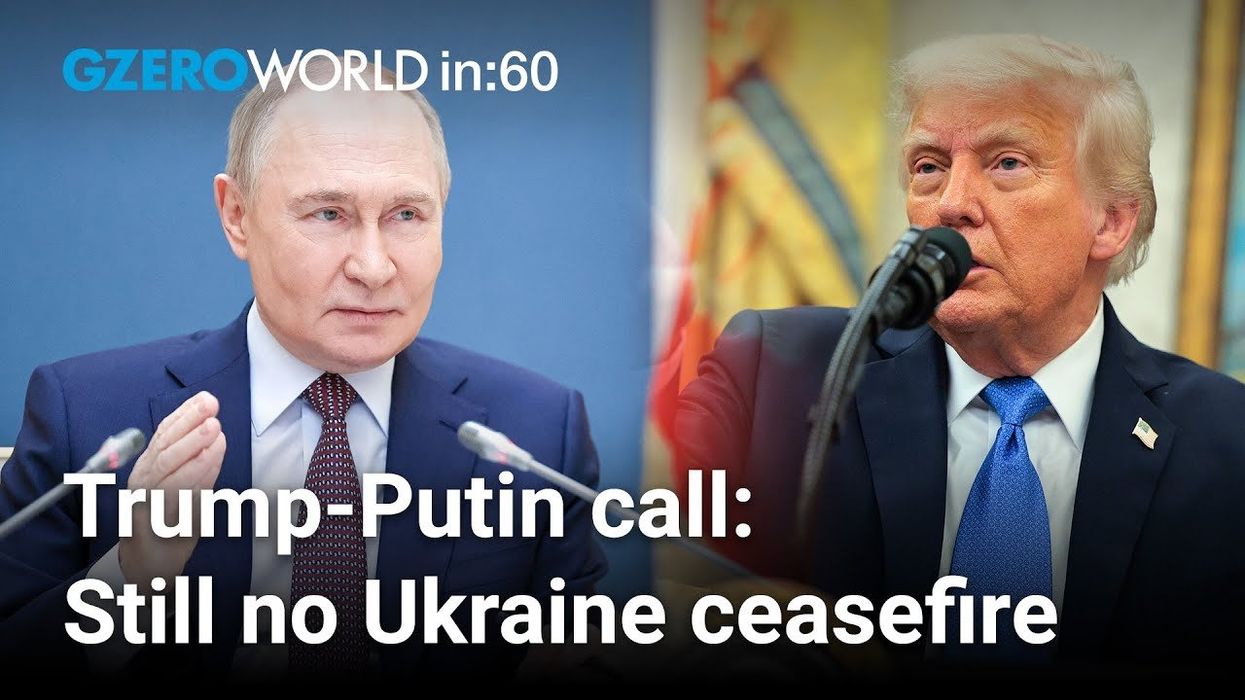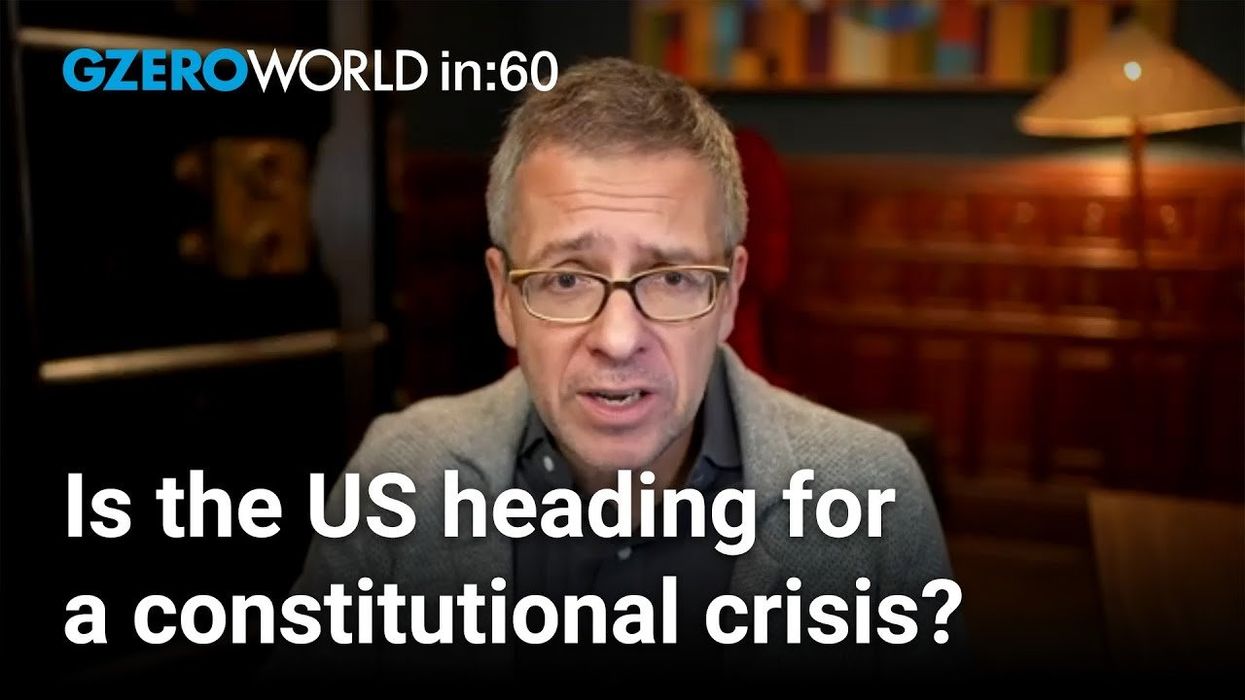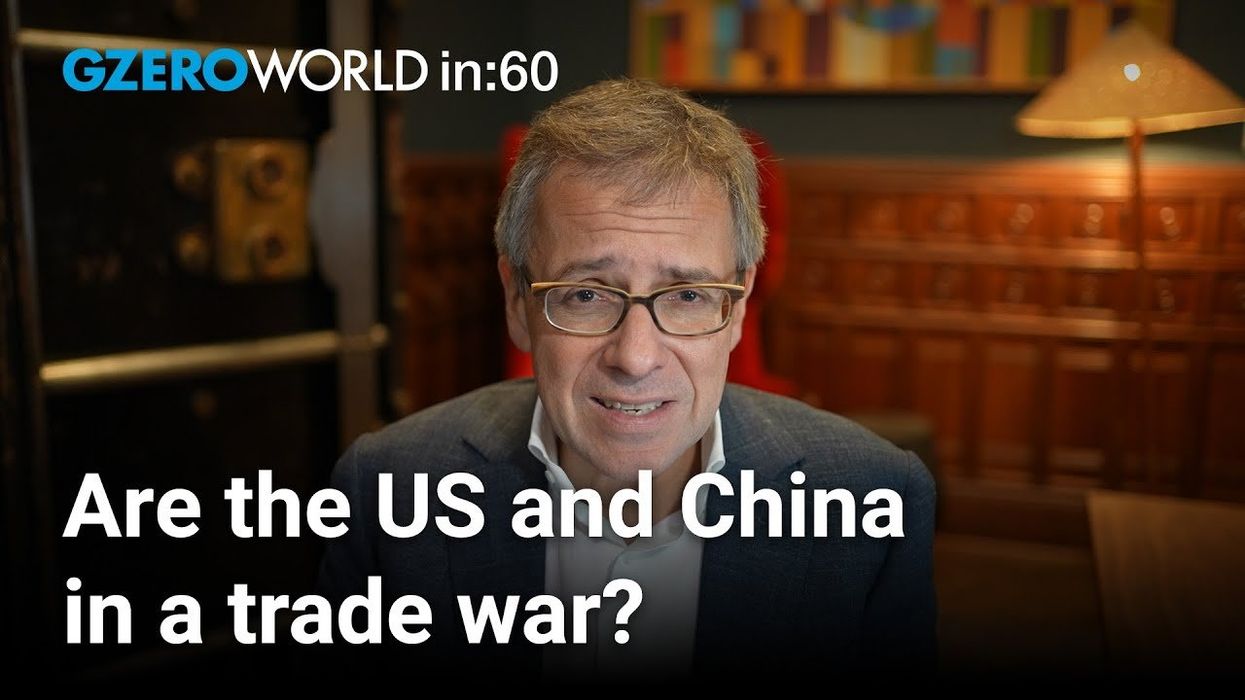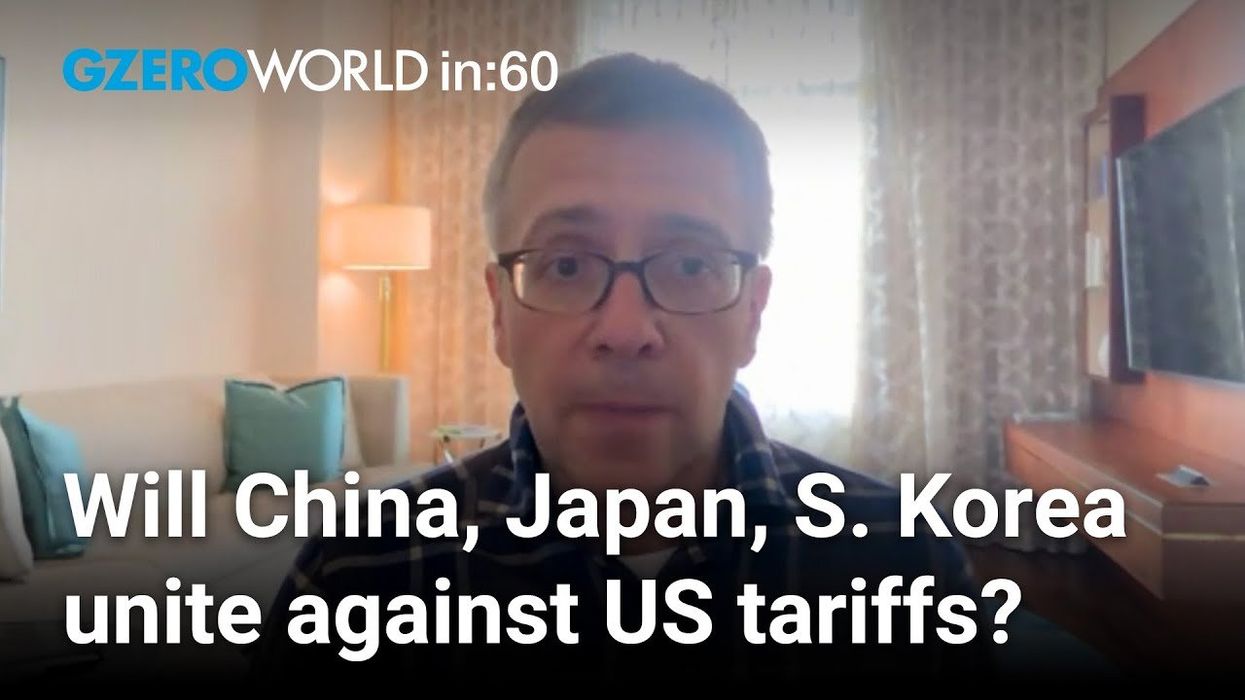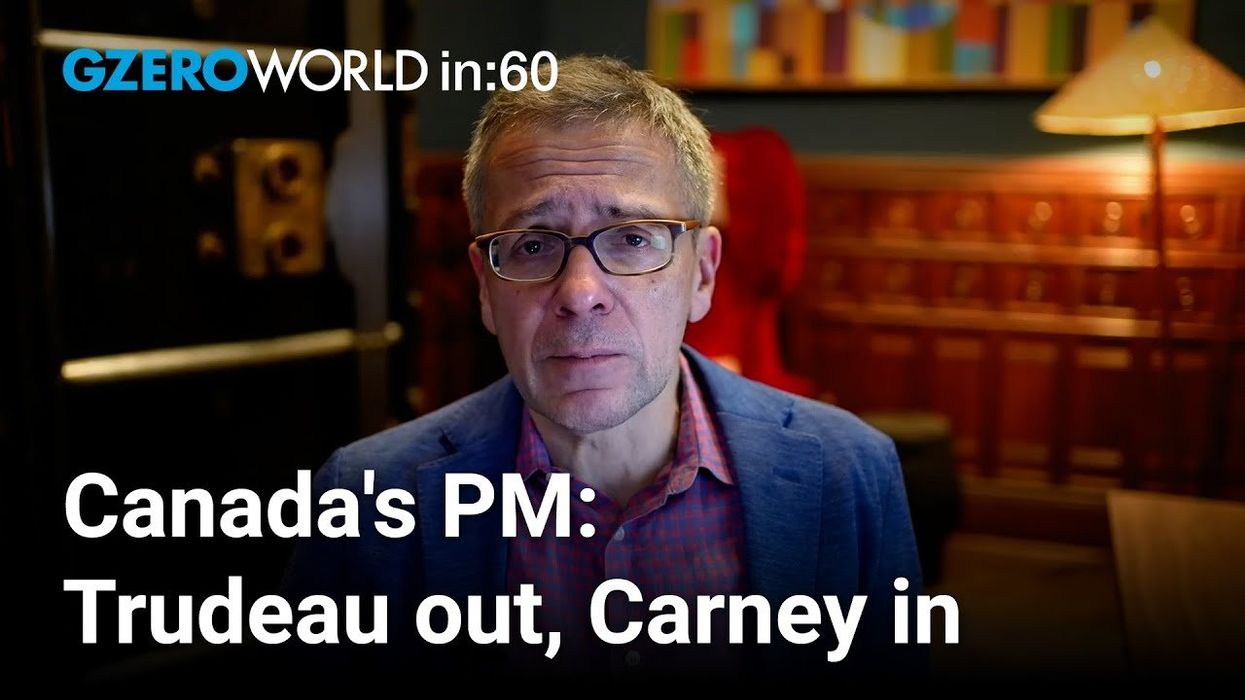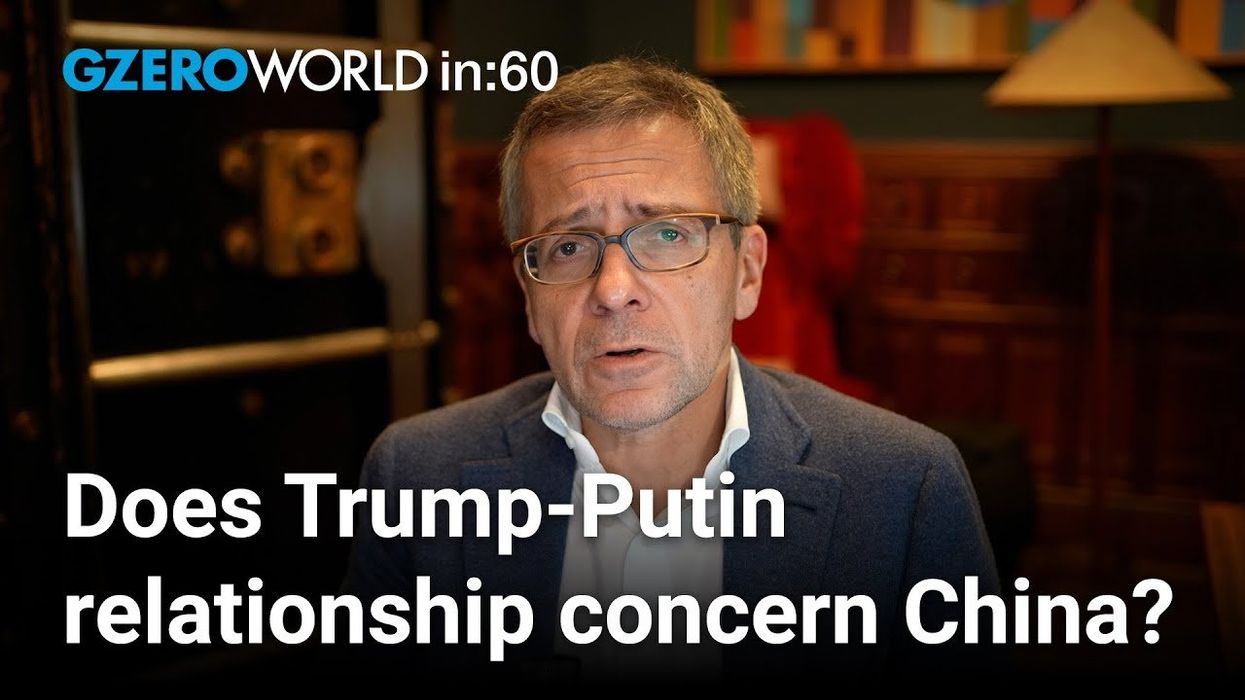VIDEOSGZERO World with Ian BremmerQuick TakePUPPET REGIMEIan ExplainsGZERO ReportsAsk IanGlobal Stage
Site Navigation
Search
Human content,
AI powered search.
Latest Stories
Sign up for GZERO Daily.
Get our latest updates and insights delivered to your inbox.
Global Stage: Live from Munich
WATCH RECORDING
Ian Bremmer shares his insights on global politics this week with a look at the China-US economic relationship, North Korea's missiles tests, and the New York Times' investigation of the US drone strike in Afghanistan.
China owns more than $1 trillion US debt, but how much leverage do they actually have?
I mean, the leverage is mutual and it comes from the enormous interdependence in the economic relationship of the United States and China. And it's about debt. And it's about trade. It's about tourism. It's about sort of mutual investment. Now. There is some decoupling happening in terms of labor, increasingly moving domestic in terms of the China five-year plan, dual circulation focusing more on domestic economy, and in terms of data systems breaking up, the internet of things, being Chinese or American, but not both. And indebtedness is part of that. But I don't see that unwinding anytime soon. And certainly, the Chinese knows if they're going to get rid of a whole bunch of American debt, they wouldn't be as diversified in global portfolio. Not as great, it's much riskier. And also, the price of those holdings, as they start selling them down would go down. So, I don't think there's a lot of leverage there, frankly. I think the leverage is interdependent.
North Korea tested new long-range cruise missiles. What message is Pyongyang trying to send?
Well, they're medium-range missiles. They don't have the ability to hit the United States. And if you remember in the early Trump days, that was the red line. It also started reprocessing at Yongbyon, again their facility; that is, they had stopped that. I mean, clearly this is a couple of incidents where Kim Jong Un is angry that he's not getting engagement in any sanctions reduction from the Biden administration. Certainly no bilats, and so he's pushing a little bit. He wants more attention and he's going to get it from the Biden administration, but I don't think he's going to get much of a negotiating stance change. And in that regard, I would expect at some point more saber-rattling from Kim Jong Un. Maybe that could be more destabilizing. But what we're seeing right now are very early days.
What was revealed in the New York Times' investigation of the US drone strike in Afghanistan?
Well here, this is an ugly one. I mean, this is 10 Afghan civilians who were killed in this drone strike by the United States. President Biden, and seniors in the administration, and the Joint Chiefs, Milley, and others said that this was a strike that got a suicide bomber who was about to attack the United States and Afghan civilians at the Hamid Karzai International Airport. That was not the case. That information was faulty. The trigger finger was too quick. And as a consequence, the last act on the ground of the Americans at a 20-year war in Afghanistan was killing a bunch of civilians. It's horrible. Certainly, accountability needs to be made. The New York Times did a fantastic job of forensic investigating on the scene. They had to be applauded. Surprised it hasn't gotten more news, frankly, more coverage. Broadly though, now the US troops are all gone in Afghanistan, we are not spending as much time talking about it. So, but we still will, here at GZERO.
Keep reading...Show less
More from ask ian
Trump–Zelensky meeting at Mar-a-Lago
December 29, 2025
Is the US heading toward military strikes in Venezuela?
December 22, 2025
Trump, loyalty, and the limits of accountability
December 16, 2025
Notre Dame, politics, and playing by their own rules
December 08, 2025
Trump threatens regime change in Venezuela
December 02, 2025
Is Trump’s trade strategy backfiring abroad?
November 25, 2025
Ian stands in line for a bagel, the internet melts down
November 21, 2025
Could Trump have handled the Epstein issue any worse?
November 17, 2025
Democrats divided over government shutdown deal
November 11, 2025
Zohran Mamdani and America's political future
November 04, 2025
Trump, Xi, and the new US–China standoff
October 14, 2025
US-China AI race: Dueling strategies and potential risks
October 07, 2025
Trump shifts on Russia: From carrots to sticks in Ukraine war
September 30, 2025
Trump’s UN speech: Sovereignty, security, and ending wars
September 23, 2025
Israel attacks and targets Hamas leadership in Qatar
September 10, 2025
US strike on vessel from Venezuela
September 03, 2025
Trump pulls US out of UNESCO, again
July 22, 2025
Trump announces new plan to arm Ukraine
July 15, 2025
Are NATO allies aligned on Iran?
June 24, 2025
Will Iran’s regime survive?
June 18, 2025
Trump-Musk rift over Trump's "big, beautiful bill"
June 04, 2025
What is Trump after in his latest Gulf states tour?
May 13, 2025
Why Mark Carney’s victory won’t heal the US-Canada rift
April 29, 2025
Trump tariff is starting a US-China trade war
April 08, 2025
What if Japan & South Korea sided with China on US tariffs?
April 01, 2025
US travel warnings issued by its closest allies
March 25, 2025
US-Canada trade war helps Mark Carney's election prospects
March 11, 2025
Why Trump won’t break the Putin-Xi alliance
March 04, 2025
Will Trump & Musk punish Brazil over Bolsonaro indictment?
February 19, 2025
Putin trolls Europe about "the master" Trump
February 04, 2025
DeepSeek puts US-China relations on edge
January 30, 2025
Gaza ceasefire likely as Biden and Trump both push
January 14, 2025
Meta scraps fact-checking program: What next?
January 07, 2025
GZERO Series
GZERO Daily: our free newsletter about global politics
Keep up with what’s going on around the world - and why it matters.


















